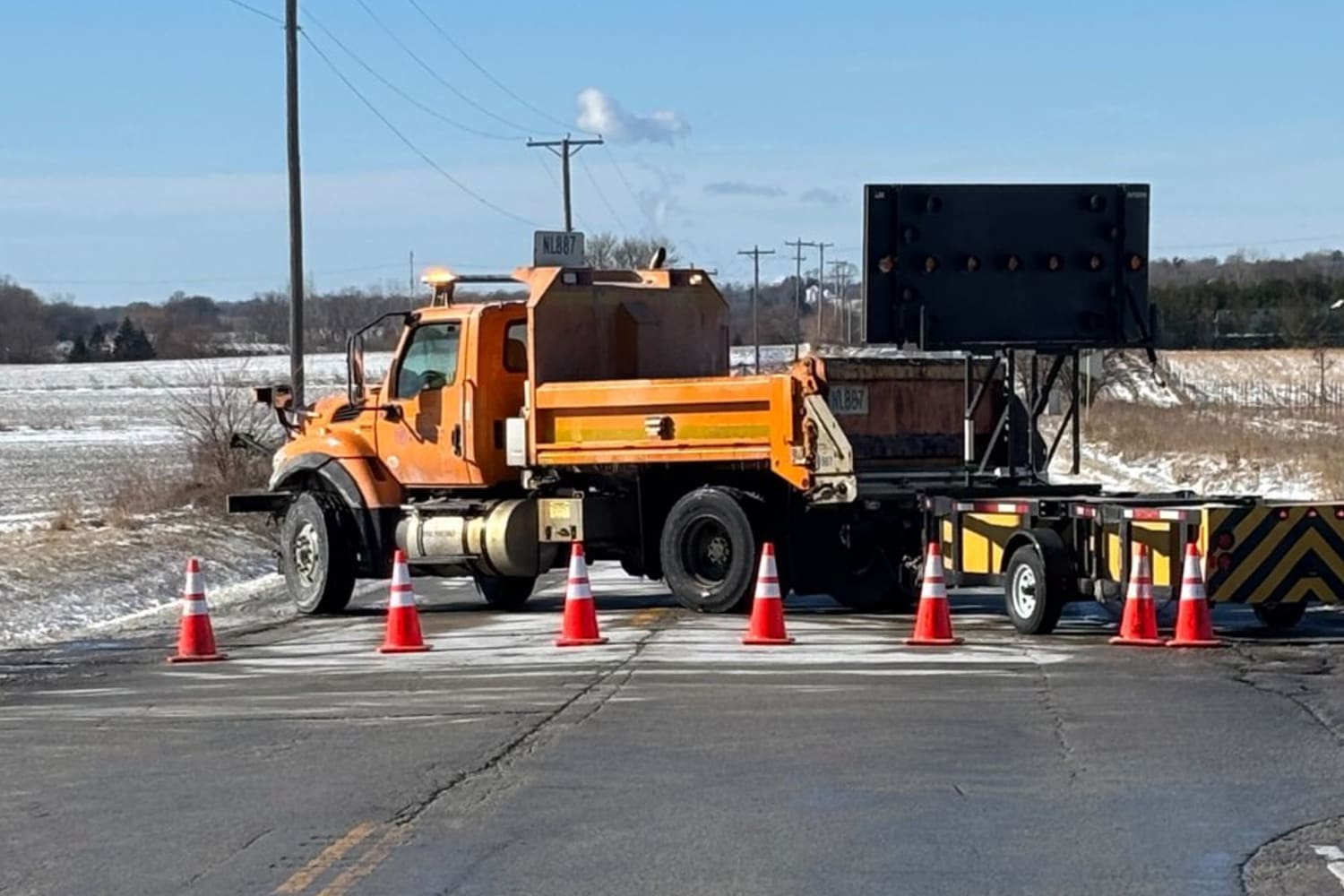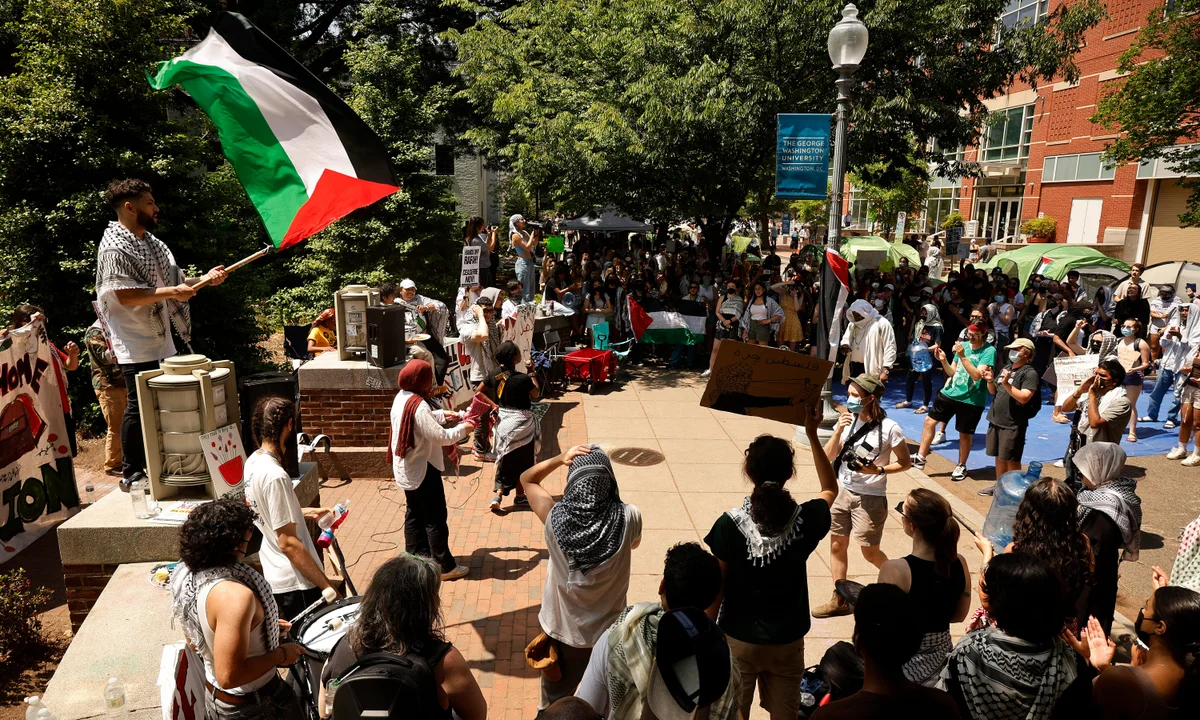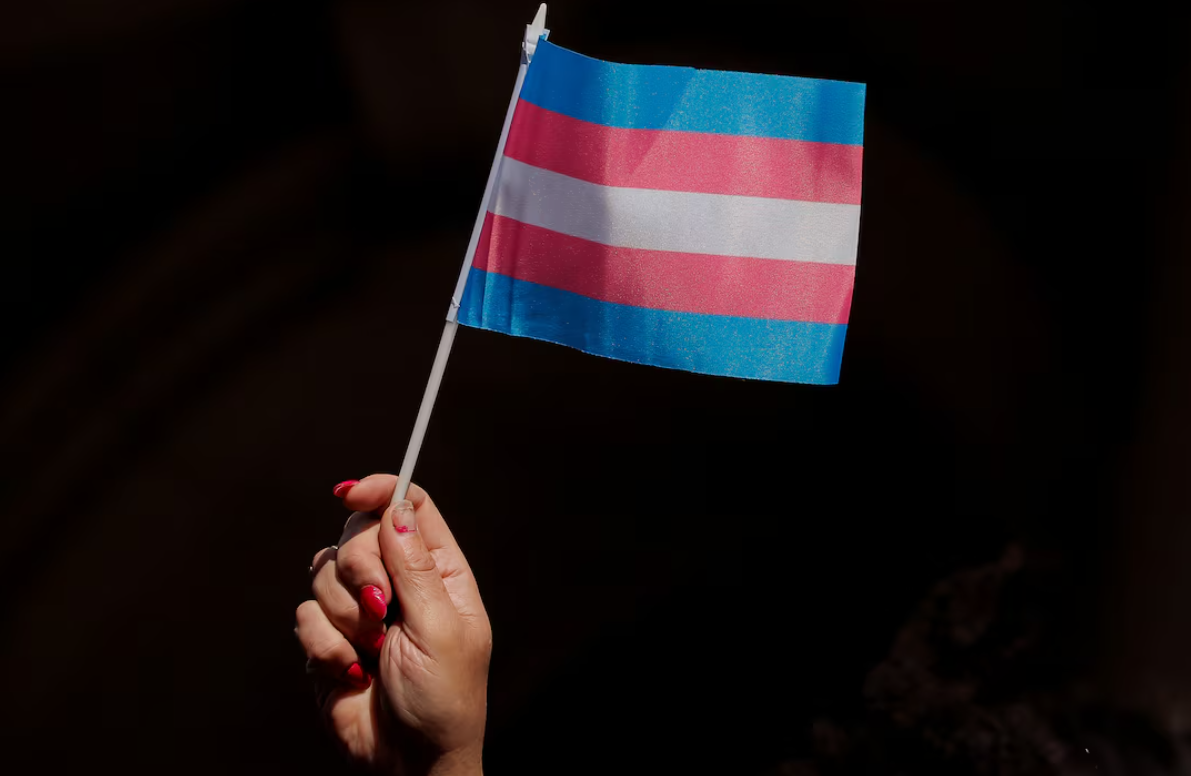Classes may be ending at many colleges and universities, but the student antiwar movement shows no signs of slowing down this summer.
Activists at campuses from California to New York are continuing to demand that their schools divest from Israeli companies with ties to the war in Gaza.
Some protesters, like alumni at Columbia University, have even erected new encampments after administrators ordered previous ones torn down.
The disruptions follow a turbulent spring for many institutions of higher learning, where protesters sometimes were arrested and faced violent counterprotests and threats of suspension.
“This isn’t just a fad movement,” said UCLA graduate student Michaela, who wanted only her first name used for fear of harassment. “It’s not going to stop over the summer. We are going to make sure the university knows we won’t stop until they divest.”
When asked whether the ongoing protests would affect the University of California’s vast portfolio, a spokesperson referred to a statement released in April: “The University of California has consistently opposed calls for boycott against and divestment from Israel,” it read in part.
Frustrated by similar responses at other universities, many students have doubled down even as classes wind down for summer.
On Wednesday, more than a dozen protesters at Stanford University in the Bay Area were arrested — and some immediately suspended from school — after they briefly took over the president’s office.
On the same day, students at York University in Toronto established their first protest encampment. Police were called in hours later to dismantle it, organizers said.
Rallies and marches were also held this week at Wayne State University in Detroit and at several University of California locations, including Los Angeles, San Diego and Irvine.
At Columbia in New York City, alumni pitched tents last Friday in solidarity with students who erected the first protest encampment on a U.S. campus in mid-April. The new tents were taken down on Sunday.
This weekend, organizers with the Palestinian Youth Movement expect tens of thousands of young people to descend on Washington to demand a cease-fire in Gaza and an end to U.S. military aid to Israel. Buses carrying protesters will leave from dozens of cities, and solidarity rallies are planned in several locations across the country for people unable to travel to the nation’s capital.
“People are fed up,” said Maryam Mohamed with the Palestinian Youth Movement. “Biden said Rafah was his red line, but we’ve seen the invasion of Rafah has been going on for weeks, and all the while we’re continuing to see massacres.”
More than 36,500 people have been killed in Gaza, according to the Gaza Health Ministry, since the war started on Oct. 7 when the Hamas terrorist organization attacked Israel. About 1,200 people were killed and 250 others were taken hostage, according to Israeli officials.
Students protesting the war say Israel has gone too far, and they refuse to silence their calls for universities to unravel their financial ties to the country.
Mohamed said she credits students with spreading an antiwar message that will reverberate through the summer and into the presidential election in November.
“The students sparked a new energy into the movement,” she said. “The movement was ready and able to meet the students where they’re at and carry forward that energy.”
At Princeton University in New Jersey, where a 10-day hunger strike ended last month, activists continue to organize, recruit and train over the summer break, said MJ, a recent graduate who asked that only her first name be used because she feared harassment.
Among their top priorities is researching and writing a detailed divestment proposal to submit to university officials when classes resume, she said.
Several dozen people affiliated with Princeton will go to the White House this weekend, she said.
“People often say Princeton is an orange bubble,” she said. “It’s true, from the purveying attitude of students to the attitude of administrators. It can be very isolating in many ways.”
Vincent Doehr, a political science doctoral candidate at UCLA, says the atmosphere on campus has only worsened since police were called in to dismantle a student protest encampment in early May. Dozens of people were arrested, tear gassed or hit by rubber bullets.
Doehr said a passerby threw a milkshake at an antiwar protester last week, and in a separate incident, counterprotesters tore apart a pro-Palestinian banner and broke a demonstrator’s phone.
Doehr is among thousands of union members on strike at the University of California over what United Auto Workers Local 4811 calls unfair labor practices stemming from crackdowns on protesters.
The union, which represents more than 48,000 academic workers, graduate students and researchers, approved the strike last month after demonstrators, including union members, were arrested at UC campuses.
The union is demanding the UC system offer “amnesty for those who experienced arrest or are facing University discipline.” The ongoing work stoppage, now in its second week, could mean final grades won’t be submitted when the quarter ends next week.
Workers at six of the 10 UC campuses were on strike Thursday.
“Currently our main leverage is the strike,” Doehr said.
The UC president’s office said in a statement that the strike is illegal, adding that its contract with the union includes a no-strike provision. The union has argued that it can legally strike over unfair labor practices that fall outside the scope of a union contract.
Michela, who is also on strike at UCLA, said she is “traumatized” by the violence that unfolded on campus last month between protesters, counter-protesters and police.
Nevertheless, she intends to continue protesting on and off campus even after classes break for the summer.
“People are coming in next year who deserve an education that is rooted in some form of integrity,” she said.




